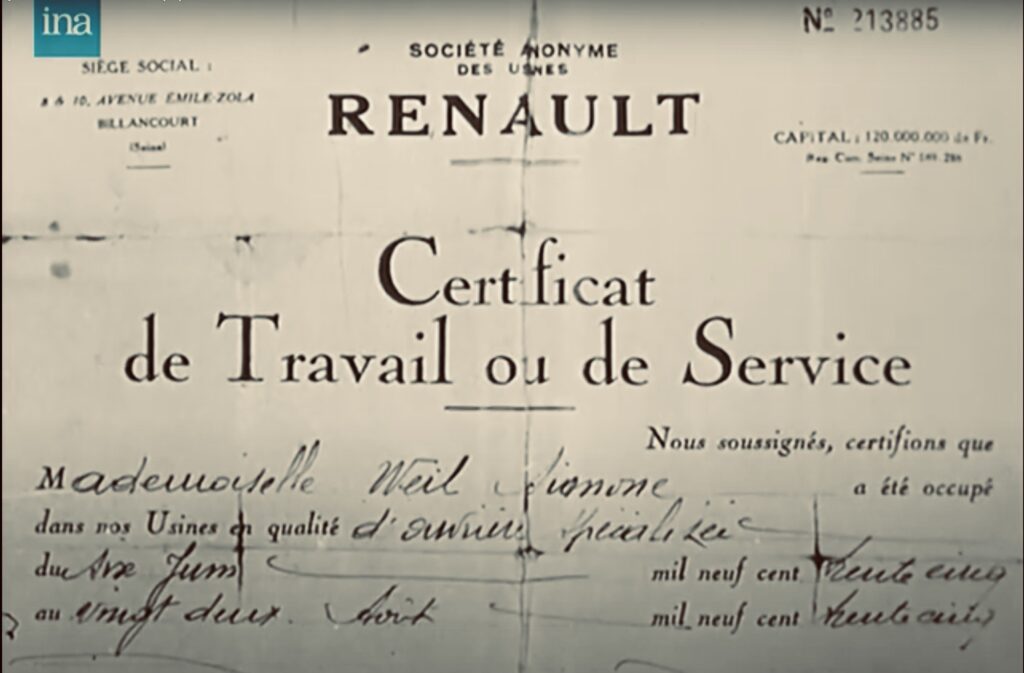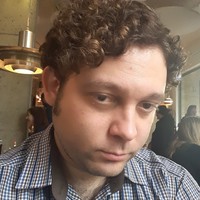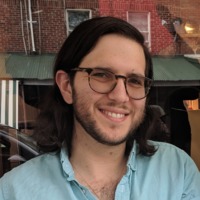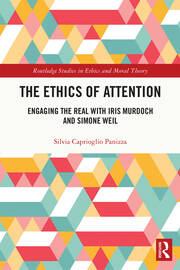Inside Issue 9: New and Forthcoming

New Video Content
- “Simone Deitz on Simone Weil: Video (circa 1988),” introduction by Eric Springsted.
Simone Weil: Travels and Timeline
This link contains a list of the countries, cities, and regions in which Simone Weil grew up and later traveled to in her lifetime along with an accompanying timeline.
Upcoming Conference
- “Simone Weil for Our Times,” Senate House, London (Sept. 21-22, 2023)
Forthcoming book on Arendt and Weil
- Kathryn Lawson & Joshua Livingstone, eds., Hannah Arendt and Simone Weil: Political Thinkers in Dialogue(Bloomsbury Academic, Feb. 22, 2024)

Abstract: Hannah Arendt and Simone Weil were two of the most compelling political thinkers of the 20th century who, despite having similar life-experiences, developed radically distinct political philosophies. This unique dialogue between the writings of Arendt and Weil highlights Arendt’s secular humanism, her emphasis on heroic action, and her rejection of the moral approach to politics, contrasted starkly with Weil’s religious approach, her faith in the power of divine Goodness, and her other-centric ethic of suffering and affliction. The writings here respect the profound differences between Arendt and Weil whilst pulling out the shared preoccupations of power, violence, freedom, resistance, responsibility, attention, aesthetics, and vulnerability. Without shying away from exploring the more difficult concepts in these philosophers’ works, Hannah Arendt and Simone Weilalso aims to pull out the relevance of their writings for contemporary issues.
Forthcoming: Reissue of Intimations of Christianity
- Simone Weil, Intimations of Christianity Among the Ancient Greeks (Routledge, Sept. 28, 2023)
New Book
- Maria Villela-Petit, Questioning Greece with Heidegger and Simone Weil (Independently published, Joseph S. O’Leary, trans.)
Abstract: “In this book a long-time student of phenomenology and of Greek art and philosophy stages a “loving quarrel” between two daring thinkers who loved Greece but had diametrically opposed interpretations of its legacy. Maria Villela-Petit brings out unsuspected strengths in Simone Weil’s readings of Homer, Plato, and Greek Tragedy and unsuspected weaknesses in Heidegger’s historical construction and the tradition of German philhellenism which shaped it.”
1949 Gallimard edition of L’Enracinement for the asking?

Cindy Jennings has kindly asked us to offer a 1949 Gallimard edition of L’Enracinement to any library for the asking (subject to a few modest conditions, but at no expense). Certain individuals with a demonstrable interest will also be considered.
Contact: cindy@w-link.net
Six New Articles
- Maria Clara Bingemer, “Mystical Experience: Women’s Pathway to Knowledge,” Religions, vol. 14, no.2 (Jan. 2023), p. 230.
- Nelli Sołonko, “The Objectification of the Worker: Simone Weil and her Influence on Contemporary Thought,” French Studies Bulletin, vol. 44, no. 166 (Summer 2023), pp. 12–16 {L’Objectification du Travailleur: Simone Weil et son Influence Sur la Pensée Contemporaine} [Yandex Translate]
Abstract: “The French philosopher, Simone Weil (1909-1943) elaborated a thought on work, on its organization and its conditions. Having experienced the mechanization of companies, she was able to describe the process of the objectification of the worker. His reflection on the instrumentalization of the worker and that of work always nourishes great contemporary thinkers, such as Alain. This reflection is all the more current at the dawn of new realities, such as digitalization and the Internet revolution, which, supposed to liberate man, are factors of an even deeper objectification of the employee.
This article, therefore, aims to unveil the mechanisms of objectification as Simone Weil described them and to propose some ways to transcend them, faced with the risk of their persistence in an upset work environment.
Excerpt: The thirties in France were marked by the great economic depression and political instability: small entrepreneurs suffered, unemployment increased and workers’ strikes multiplied. Weil does not remain indifferent to the social and political events of her time. As a young teacher in the early thirties, she is already working as a trade unionist. She then apprehends the phenomenon of the alienation of the worker through the works of Karl Marx, but it is their objectification that she will confront for several months (from December 1934 to August 1935) while working in the Renault and Alsthom factories. From this period she leaves us her Factory Diary whch highlights her own internal conflicts but which also describes the daily life of the workers of the 1930s, daily life often limited to the ‘working time’ factor. In it, she describes their situation, their uprooting and their alienation. . . .”
- Michail Theodosiadis , “Self-Purification and Social Dramatization; from Simone Weil to Martin Luther King Jr.,” Religions, vol. 14, no. 4 (2023)

Abstract: “This article begins with an analysis of Simone Weil’s notion of “impersonality”, which implies disengagement from earthly attachments, deep introspection, and connection with an “anonymous” God, that is, with an imagined spiritual force of purity, located beyond the observable secular world. “Impersonality” encourages purification (or catharsis) from frantic passions (excited by such attachments); it inspires love, which Weil associates with respect and selfless devotion to social justice. My goal is to identify a shared set of similarities between Weil and Martin Luther King Jr. on the issue of individual catharsis, acknowledging also important divergences. King—contra Weil—claimed that rejection of frantic passions is incited through connection with a “personal” (rather than “anonymous”) God, with a high moral power, which responds to individual prayers and leads men and women into the path of love. Like Weil, King associated love with mutual respect and social justice. Both Weil and King believed that individual catharsis should lead to civil disobedience, whose ultimate objective is collective catharsis, that is, the abandonment of deeply rooted attitudes and beliefs (on behalf of a collectivity) that (sometimes unknowingly) perpetuate injustices, causing great suffering. By reflecting on the viewpoints offered by these thinkers, the present study will attempt to shed light on the process by which collective catharsis shifts public attitudes. The aim of civil disobedience, I will explain, is to dramatize social evils (such as racism and social exclusion), making large portions of a society aware of their passive reproduction of attitudes that contribute to the perpetuation of such unjust practices.”
- Thomas Sojer, “Eric Voegelin’s and Simone Weil’s return to Ancient Greece,” Acta Antiqua Academiae Scientiarum Hungaricae, vol 61, no. 1 (May 17, 2022), pp. 87-96.

Summary: Two enigmatic figures of 20th-century political theory, Eric Voegelin and Simone Weil, stand out with idiosyncratic receptions of ancient Greek texts. Both thinkers diagnosed that, as political agents in late modernity, we have unlearned to read world-making ancient texts and their narratives in their cosmic dimension and thus lost what has rooted European culture and history. Against this backdrop, Voegelin and Weil share ‘antidotal’ practises of combining historically and generically distinct material. These practices aim at fathoming a primordial experience at work in European narratives. With this comparative analysis of Voegelin’s and Weil’s symbolic readings (exemplified in this paper by passages from the Iliad, the History of the Peloponnesian War, and the Symposium), I present some considerations of how their combinatory imagination of ancient material could supply late modern political agents with a pathos, a meaningful self-world relationship that was thought to have gone missing.
- Anna Kelner, “Medieval Mysticism and the Making of Simone Weil,” in Benjamin A. Saltzman & R. D. Perry, eds., Thinking of the Medieval: Midcentury Intellectuals and the Middle Ages (Cambridge University Press, 2022), pp. 239-254.
- Richard B. Gunderman, “The Real Roots of Burnout: Simone Weil on Attention,” Academic Radiology (Jan. 18, 2023)
1950 Article: Weil on the Idea of Greatness
- Simone Weil, “Hitler and the Idea of Greatness: Force is Our Only Measure,” Commentary (July 1950) (excerpted from L’Enracinement, Bernard Frechtman trans.)
Abstract: “Three are certain reputations which seem to be in need of the seal of death in order to flourish. SIMONE WEIL is a case in point. When she died in 1943, at the age of thirty-four, she was known in her native land, France, as a somewhat eccentric writer on matters political, literary, and religious. In the United States, she has been known until recently primarily by a translation of her essay “The Iliad: Poem of Force,” in which she was revealed as a sensitive, eloquent, and uncompromising moralist. Since her death, her writings and her personality have attracted an increasing interest, until she is regarded at the moment as perhaps the most significant religious thinker to have been produced by France in the past two decades. . . . . The essay printed here indicates some of the main aspects of Simone Weil’s thought: her detestation of force, her radical morality, her burning pen. It is excerpted from a posthumous work, L’Enracinement.”

Related
- Ronald Collins, “What is Greatness? On Reading the Past,” in Eric Springsted & Ronald Collins, eds., A Declaration of Duties toward Humankind: A Critical Companion to Simone Weil’s The Need for Roots (forthcoming 2024).
- Scott B. Ritner, “A Critique of Greatness,” Theory & Event, vol. 26, no. 2 (April 2023), pp. 345-367
Forthcoming Book Review
- Cathy Mason, Book Review: “The Ethics of Attention: Engaging the Real with Iris Murdoch and Simone Weil by Silvia Caprioglio Panizza” (Abingdon: Routledge, 2022), pp. 179, forthcoming in Philosophy.

Excerpt: “Attention, Iris Murdoch tells us in ‘The Idea of Perfection’, is “the idea of a just and loving gaze directed upon an individual reality.” (Murdoch 1999: 327).i She takes this to be the characteristic and proper mark of moral agents, a claim that is both descriptive – a claim about what in fact characterises us as agents – and normative – a claim about how we should act, what we need to do more of in order to become better moral agents.
Silvia Caprioglio Panizza follows Murdoch in making both of these claims. Her new book The Ethics of Attention is an extended discussion of the role and importance of attention within our moral lives. Panizza here draws on the work of Murdoch and Simone Weil to explore the nature and moral importance of attention. This commonplace and recognisable activity, she suggests, is both essential for accessing moral truth and also morally significant in and of itself. Moreover, it is “fundamental to morality” (16) in that many of the other things we care about morally (such as moral knowledge and moral motivation) are well-understood as depending on attention.” [full review available on above link]
Cathy Mason is an Assistant Professor in Philosophy at Central European University
New Ph.D. Dissertation
Abstract: “Simone Weil (1909-1943) is a French philosopher who is also a prominent figure in the tradition of Christian mysticism. In her early philosophical writings and lectures, she describes her understanding of the aim of philosophy as “the Search for the Good”. Very much influenced by Plato, Descartes and Kant, Weil states that God as the absolute Good is beyond known truths and can only be reached through Love. This treatment of love as a destructive power whereby the Self effaces itself in order to get closer to God, echoes a somewhat mystical scheme. Weil believes that the only way to reach such knowledge and therefore God, which in her view is the sole purpose of life and should also be the purpose of philosophy. This dissertation focuses on the grounds that bring her to such conclusions as well as providing an analysis of whether Weil’s philosophical approach as an alternative to metaphysical and ethical problems in philosophy is able to stand firm on its own.”
{full dissertation available oneline}
New From Abroad
- Oppression and Freedom – a Conversation about Simone Weil, Politics and War, Ronnells (2023) (Google Translate from Swedish)
“The political texts of the French philosopher, mystic, and activist Simone Weil have been conspicuous by their absence in Swedish translation. Now the book publisher h:ström – Text & Kultur is remedying this shortcoming with a new title in its book series “Serie Subaltern,” Oppression and Freedom, as well as a newly published special issue of the journal Subaltern, Våld och under itself, which only contains texts by Weil on the theme of war.
In a conversation with theologian Mårten Björk, Weil translator Gustav Sjöberg and Erik Erlanson from Subaltern’seditorial staff, Simone Weil’s engaging texts and life story are presented.
Oppression and Freedom, the original French edition of which was published posthumously in 1955, collects a number of Simone Weil’s (1909–1943) texts on social and political issues. The texts were written during the most dramatic political phase of the 20th century, from 1933 to 1943. The reader of Weil’s relentlessly lucid essays can hardly avoid noting that they have unfortunately lost none of their topicality. This applies not only to the overall topic of the book – the mechanism and nature of oppression – but also to the specific forms this oppression takes in our societies, in a Europe where fascism is once again claiming power.
Violence and Wonder: In an increasingly militarized age, Simone Weil’s texts on the nature of modern war and peace offer various unexpected perspectives. Here we meet a geopolitical analyst who discusses the possibility of an anti-imperialism based on theological virtues, virtues that the populist right today tries to claim.”
- Conferencia: “Simone Weil. Unas notas de lo sobrenatural en su pensamiento” {Conference: “Simone Weil. A few notes of the supernatural in her thinking”} (April 25, 2023 on YouTube)
“On the occasion of her feast, the Faculty of Philosophy of the San Damaso University (UESD) organizes a conference entitled “Simone Weil. A few notes of the supernatural in his thinking.” It will be taught by Carmen Herrando Cugota, professor at the Humanism and Society Institute, San Jorge University.” (Yandex Translate) (introduced by Víctor Manuel Tirado)
The UK Simone Weil Research Network hosts Rowman Williams


